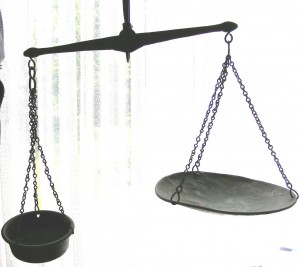Note: More than once, I’ve actually heard anti-Jewish Arabs argue that there’s no way they could be “anti-Semitic” since they don’t hate themselves; I grew up with the understanding that “Semite” is not a synonym for “Jew.” For the sake of my own clarity in writing this and to avoid that sort of semantic nit-picking, I will refer to hostility towards Jews as anti-Jewish sentiment rather than as anti-Semitism. Again, that is for my own clarity of thought and is in no way in support of those who derail discussions anti-Semitism with semantic charges.
I have a confession to make: I used to believe that the Holocaust was exaggerated at best and a fabrication at worst.
I know, I know. I usually write to combat stereotypes and humanize Muslims, but that is what I thought. You know how almost every family has a resident bigot uncle and/or grandpa? Mine is no exception. From a young age, certain relatives of mine used to encourage the young people in my family to be “skeptical” of claims related to the Holocaust. I remember a cousin of mine being praised for telling his history teacher that the Holocaust is “a load of crap.” In my early adolescent years, during my protesting in favor of the Second Intifada, I absorbed claims that veered from pro-Palestinian to anti-Israeli/anti-Zionist and then into very anti-Jewish territory.
Thankfully, I attended a public school in an area with a significant Jewish population. Between my befriending of a classmate whose grandfather survived the Holocaust and attending a field trip to the Los Angeles Museum of Tolerance, my hard-core Holocaust denial phase was short-lived. However, the residual guilt for once having been one of those assholes hasn’t quite left me.
Which is why, when I first heard about FFRF’s decision to oppose the use of the Star of David on a publicly-funded Holocaust memorial, my initial reaction was to feel more than a little chagrin. After all, wasn’t the most prominently-stated goals of the Holocaust to wipe out the Jewish people? Why not allow that to be expressed in the memorial?
Knee-jerk reasoning, whether it’s to atone for youthful hatred or otherwise, rarely leads to the best conclusions. Indeed, my conclusions changed after I found out, thanks to the Friendly Atheist as well as Dave Silverman of American Atheists, that designs for the monument that would’t have used a Star of David were rejected, that the chair of the Capitol Square Review and Advisory Board resigned over the matter, and that the monument is intended to honor all victims of the Holocaust, not only the Jewish ones.
It makes little sense to inscribe an unarguably Jewish (although whether it’s more religious or cultural is somewhat up for debate) symbol above an inscription that is supposed to honor all the victims of the Holocaust. It makes even less sense to do so on public property and, at least partially, on the public dime. To do so seems to relegate the inscription to the level of lip service as opposed to a genuine move to be inclusive of every group that was targeted and killed in Nazi Germany.
















